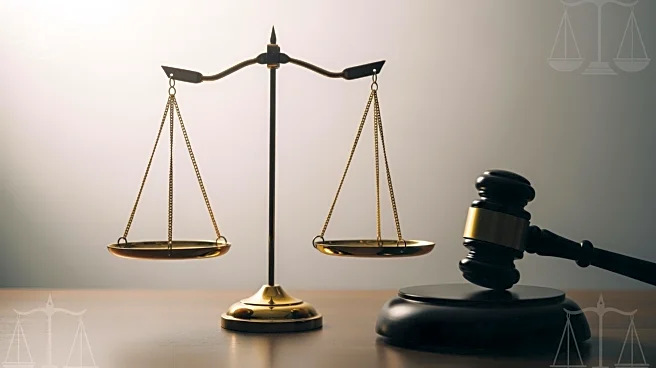What's Happening?
South Korea's special prosecutor has indicted former President Yoon Suk Yeol on new charges, including abuse of power and aiding an enemy state. This development was reported by the Yonhap News Agency.
The indictment adds to the legal challenges faced by Yoon, who has been under investigation for various allegations since leaving office. The charges suggest a continuation of the scrutiny on Yoon's presidency, which has been marked by controversy and legal battles. The special prosecutor's office has been actively pursuing cases against former officials, aiming to address alleged misconduct during Yoon's tenure.
Why It's Important?
The indictment of former President Yoon Suk Yeol is significant as it underscores ongoing efforts to hold former leaders accountable for their actions while in office. This case could have implications for South Korea's political landscape, potentially influencing public trust in government institutions and the rule of law. It may also impact Yoon's political allies and the opposition, as they navigate the fallout from these legal proceedings. The charges could lead to broader discussions on governance and accountability in South Korea, affecting future political dynamics and policy-making.
What's Next?
The legal proceedings against Yoon are expected to continue, with potential court hearings and further investigations. The outcome of these charges could influence Yoon's political future and the broader political environment in South Korea. Stakeholders, including political parties and civil society groups, may react to the developments, shaping public discourse and policy responses. The case may also prompt discussions on legal reforms and the role of special prosecutors in addressing political corruption.
Beyond the Headlines
The indictment raises questions about the ethical standards and legal accountability of political leaders in South Korea. It highlights the challenges of balancing political power with legal oversight, and the potential for legal systems to address alleged misconduct. The case may contribute to a broader cultural shift towards greater transparency and accountability in governance, influencing public expectations and political norms.











